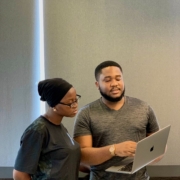Common English Mistakes in Korea – Crazy!
Teaching in Korea can be insane. In either a good or bad way. Whether it is all the common English mistakes in Korea or cultural nuances and bizarre customs. It’s really what you make of it and the mindset you adopt. We are all faced with the same dynamic situations but because of our respective upbringing and life experiences, we all observe and process things differently. A very common way we like to look at living in Korea is that if 10 teachers were faced with the same situation, you’d have 10 different opinions. Context, culture and nuance matter more than you may think!
But the craziness can get you into trouble if not properly checked. What the heck am I going on about?
The word ‘Crazy’, itself, is sure to drive you crazy in Korea.
Common English Mistakes in Korea – Apt to Drive You Crazy!
You see, the Korean adjective equivalent of ‘crazy’ or ‘insane’ is 미친 (mee-cheen). Which, in Korean, is a borderline or full-blown swearword. Think of someone saying to you with a straightface that you are a psycho and need to literally be institutionalized. Heavy stuff. If you ever hear two Koreans get in a screaming match, you’ll be surprised how much the Korean word for ‘crazy’ gets spat out.
So you can imagine when an English teacher comes to Korea and laughs it up with kids in class and says ‘ha, ha, you are so crazy!’, you might see the class exhibit a mixture of gasps, awkward silences and a few rebellious types laugh out loud.
 A few days later, you might then be confused when pulled aside by your school director or head teacher and asked to not use the word ‘crazy’ in any context, even though you may talk till you are red in the face that you are a native speaker and insist that the use of the word in the context you used was intended to be in jest.
A few days later, you might then be confused when pulled aside by your school director or head teacher and asked to not use the word ‘crazy’ in any context, even though you may talk till you are red in the face that you are a native speaker and insist that the use of the word in the context you used was intended to be in jest.
Aren’t I the native speaker here?
You are not debating on the use of the word in English and how it is used in Western countries. You are in the middle of a debate on how the word is transliterated into Korean and usually by Korean parents who don’t speak much English but know enough to show some concern when their kid comes home and says the word ‘crazy’.
If found in this situation, don’t make the use of the word ‘crazy’ your personal hill worth dying on. There are a lot of common English mistakes in Korea that are so widespread, they will burn you out if you take it upon yourself to battle all of them. Just focus on making a difference in your own students and correcting the bad habits bestowed on them by other English teachers who came there before you.
Better yet, be mindful of this in class and even counsel the kids against using it while in Korea in case you hear them say ‘crazy’ to each other and have obviously picked it up from the last teacher who wasn’t as culturally savvy as you are shaping up to be.
And certainly don’t revel at the fact that they are breaking out in laughter upon hearing you say ‘crazy’ just as a cat would go nuts when smelling catnip. And ESPECIALLY if you say something like ‘crazy boy’ or ‘crazy girl’, the Korean equivalents of which are right up there with Korean swearwords. They aren’t laughing because you are funny. They are laughing because you’re openly being naughty in their eyes. And this WILL get back to parents at some point and cause your director to have to do some delicate explaining to prevent those parents from dropping the kids out or at least switching to a different class. And you might not ever hear about any of this at all and be left wondering why the head teacher or director doesn’t greet you with the same enthusiasm as they did before.
Adopting this kind of mindset will also impress your director and they’ll be more inclined to cut you a lot of slack or go to extra lengths to be more accommodating to you while you are employed with them.
Ever experience students or co-workers reacting to your use of the word ‘crazy’ in class? Let us know how you perceived it and how they responded by cautioning them against the use of that word while in Korea.
Looking for more insights into correcting common English mistakes in Korea? Check out our other linked articles!
- Teaching English in Nowon-gu of Seoul - August 23, 2022
- Teaching English in Cheongju at Chungbuk International Education Center - August 22, 2022
- Teaching English in Gyeongbuk Province English Camps - August 18, 2022







 Photo by Kelly Sikkema on Unsplash
Photo by Kelly Sikkema on Unsplash  Photo by Cut in A Moment on Unsplash
Photo by Cut in A Moment on Unsplash 


Leave a Reply
Want to join the discussion?Feel free to contribute!